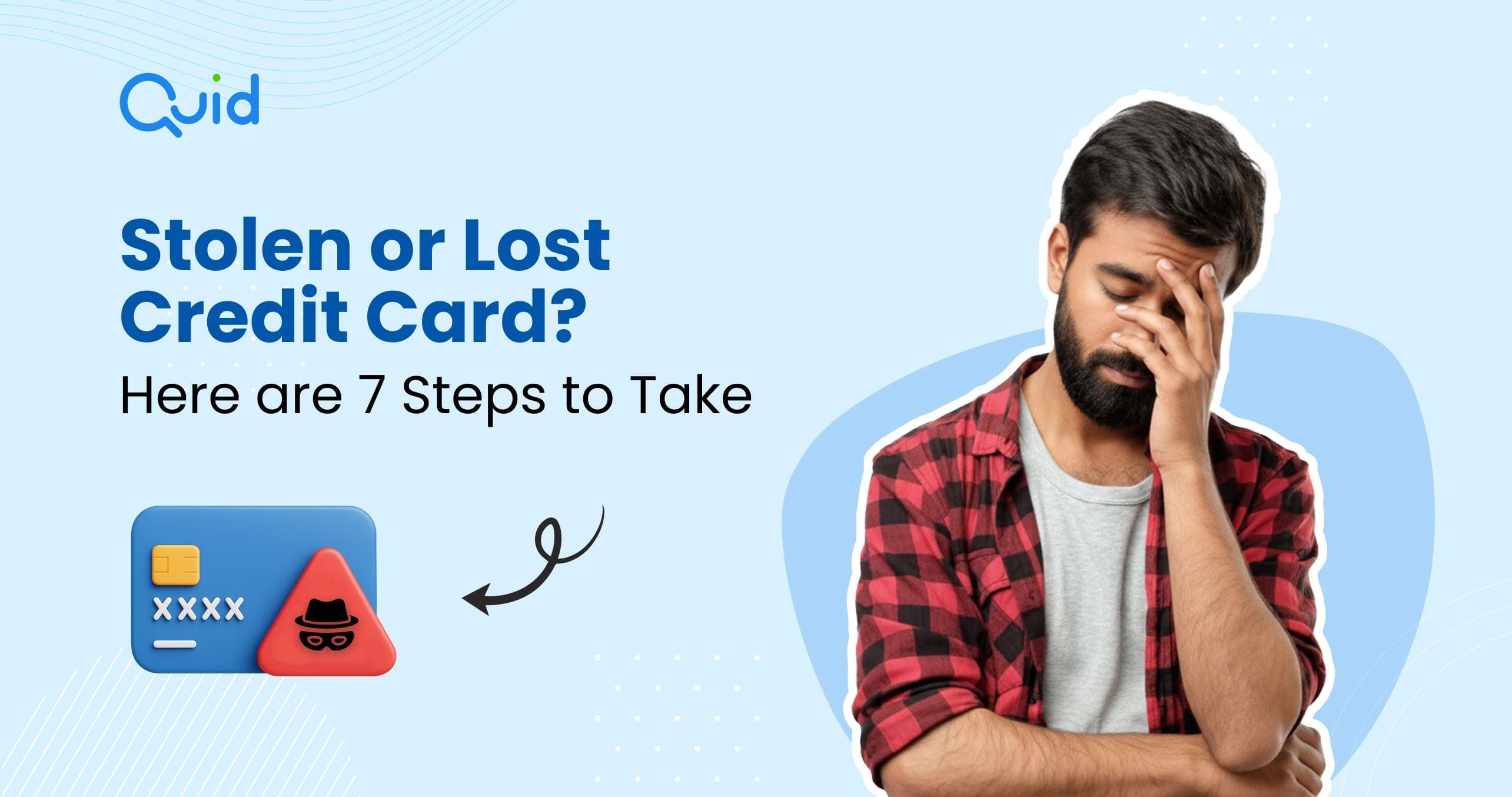
Credit cards today serve many purposes, from everyday spending to unlocking exclusive benefits. If you're a frequent credit card user and ever find that your card is lost or stolen, it's crucial to take prompt action. A stolen credit card can quickly become a financial nightmare, especially if someone uses your sensitive information without permission to commit fraud.
Acting methodically not only minimises the risk of financial loss but also helps restore peace of mind during what can be a stressful situation. For this reason, we have highlighted 7 immediate steps you should take when your credit card is lost or stolen to secure your accounts and protect your financial well-being.
As soon as you realise you have misplaced your credit card but are not sure whether it is lost or stolen, it’s always advisable to lock or freeze it right away. This will stop anyone from making new transactions using your card, while still allowing any automatic payments you have already set up to go through. Most credit card issuers make this easy to do through their mobile app, website, or by calling customer support. Locking your credit card gives you some time to figure out where it is without worrying about unauthorised use.
If you’re sure your credit card is lost or has been stolen, the next step is to report it to your bank as soon as possible. Most banks now offer 24/7 customer support so that you can reach out at any time. You can either call the number on your most recent credit card statement or follow the instructions on your bank’s website or mobile app to report this situation. Once reported, your card will be blocked or deactivated to prevent any further use by anyone, including you.
To further protect yourself, file an official report at your nearest police station. This step is especially important if there are any suspicious transactions, as having an official report on file can help ensure you are not held responsible for unauthorised charges. When filing the report, include key details like your account number, when and where the card went missing, and any unusual activity you have noticed on your credit card statement. Be sure to ask for a copy of the report and keep it with you, as you might need it later for bank or insurance claims.
After you have registered an FIR for a stolen or lost credit card, change the passwords for all accounts associated with that credit card. This means you should change passwords for online banking, mobile banking, online shopping sites, subscription services, and any other platforms where you use your credit card. Create a new password that combines alphanumeric characters to make your account less vulnerable to potential breaches.
Continuously monitor your account statements and transaction history for fishy and suspicious activities, even after reporting the loss of your card to your bank and the police station. If you find unauthorised charges or payments under your account, report them immediately to your card-issuing authority. This can help you avoid becoming liable for fraudulent charges and losses and ensure that your bank takes swift action against identity theft.
After you have reported a loss or stolen credit card to the bank and police station, inform the credit bureau as well to place a fraud alert on your credit report. The alert will protect your credit score from fraud and notify creditors that your sensitive information has been compromised. Regularly check your credit report, and if you find any inaccuracies, report them to the credit bureau immediately.
Since the bank account remains active, you can apply for a replacement credit card even after you have permanently blocked your old credit card. On average, a bank usually processes a replacement for a stolen card within 7-14 working days. However, it is best to confirm with your credit card issuing bank.
If you regularly use your credit card, keep it safely in your wallet before and after each transaction. Make a habit of keeping the CVV number, expiry date, and PIN safe and secure. You should also consider using trusted websites for online payments that are SSL-certified. However, if you plan to close your credit card account, shred the card by following the sequence of digits before discarding it.
Additionally, to protect yourself from recent digital arrest and fake IVR call scams, never engage in phone and video calls that explicitly ask for sensitive information. Legitimate banks will never ask for sensitive credit card details, especially over the phone, unless you have initiated the call.
With the rise of credit card incorporation in daily routines, fraudsters are implementing new ways to integrate systems that create opportunities for loss for card users. In case you have ever encountered a situation where you have misplaced or lost credit card, immediately report and block the card, file a police report, apply for a replacement or duplicate credit card, and constantly monitor bank statements and credit reports to catch hold of suspicious activities.
This proactiveness helps in curbing unauthorised activity, minimises potential losses, protects from credit card theft, and safeguards financial well-being. So, remember the next time you undergo a lost or stolen credit card situation, be assertive and vigilant in taking the right actions.
Get credit at first sight and be closer to your goals.
Download Now